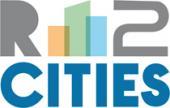
Details
Description
R2CITIES aimed to develop and demonstrate an open and easily replicable strategy for designing, constructing, and managing large scale district renovation projects for achieving nearly zero energy cities. For this purpose, it developed a demonstration and dissemination framework of very innovative strategies and solutions for building energy renovation at district level, based in the following pillars:
- Three demonstrations of residential district retrofitting, in different countries and climate conditions and with different user habits
- A very ambitious dissemination programme focused on public and professional audiences.
- Several studies of cost-effective solutions for the holistic improvement of the energy performance of buildings at district level (definition of standard indicators and new diagnosis approach, analysis of existing energy technologies in a systemic approach, new strategies for urban energy planning, etc.)
- Deployment of a rigorous measurement and verification of energy performance and savings plan for each demonstration, taking into account standard protocols such as IPMVP.
- A market and replication deployment plan, in order to ensure the project’s impact at business level, and a results exploitation strategy suitable to achieve a wide impact.
Three demo sites were addressed for demonstrating the framework and associated impacts by developing real cases going beyond current market standards but ensuring the replicability of the concepts deployed. The very ambitious renovation plan of three residential districts involved more than 57.000 m2, more than 850 dwellings and more than 1500 users, with a potential of energy consumption reduction close to 60%.
Map
Project demonstration sites
R2CITIES Site Genoa
City
R2CITIES Site Istanbul
City
R2CITIES Site Valladolid
City
Objective
The expected impacts of the R2CITIES were:
- An estimated average of energy consumption in the renovated demo sites, on final energy, to be 70 kWh/m2·year, representing a 60% reduction compared to the current situation
- CO2 emissions to be 48,15 kg/m2·year, corresponding to more than 60% reduction. The total emissions avoided by the demo sites to be 2066,8 tCO2/year.
- Reduction in heating and cooling by 75 %
- Reduction in lighting by 50 %
- Reduction in water heating by 50 %
- Reduction in advanced ICTs (design + control) by 15 %
Considering RES contribution and savings related to building controls, this led to an overall reduction of energy consumption of 76%, or savings per site:
- Valladolid: 2478 MWh/year saving and 635 Tonnes CO2 reduction per year
- Genoa: 1691 MWh/year saving and 395 Tonnes CO2 reduction per year
- Kartal (Istanbul): 3009 MWh/year saving and 847 Tonnes CO2 reduction per year
Related topics
Building aspects
- Building Energy Services
- heating and DHW
- Building Energy Services
- other please specify
- Installed Renewable Energy Sources
- solar thermal collectors
- Technology used to supply the buildings
- boiler
- Technology used to supply the buildings
- condensing boiler
- Technology used to supply the buildings
- heat pump: reversible
- Technology used to supply the buildings
- other please specify
Energy Carriers
- Domestic gas - grid-bound
- Solar thermal energy
Thematic Field
- Energy System(s) Integration
- Refurbished Building(s)
